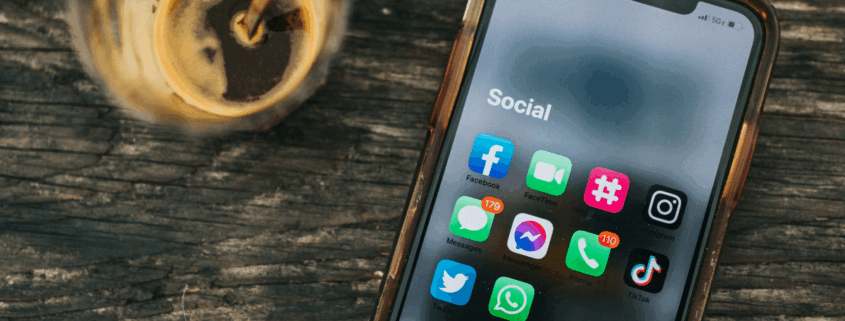Social media can impact mental health
In today’s digital world, social media has become an integral part of daily life, with its usage rates still steadily on the rise. According to the Pew Research Center, approximately 72% of Americans engage with various social media platforms. This widespread engagement begs the question of how such connectivity affects mental health.
The rapid rise of social media can be attributed to its ability to connect individuals across vast distances, allowing them to maintain relationships with family and friends, particularly during isolating times such as the pandemic. These platforms have evolved into essential communication tools, fostering both personal interactions and the dissemination of news and political discourse.
Social media proved to be a vital resource during periods of social distancing, offering tools for sharing vital information and cultivating social support when face-to-face interactions were limited. This capacity to connect people can be invaluable, helping create a sense of belonging and community in otherwise isolating environments.
Social media platforms are designed to be engaging, often prompting users to frequently check for likes, comments, and updates. This engagement activates the brain’s reward pathways, releasing dopamine, a neurotransmitter associated with pleasure and motivation. As a result, users may develop a habit-forming relationship with these platforms, driven by the desire to replicate pleasurable experiences.
Despite the benefits, research highlights significant drawbacks associated with social media use and mental health as well.
Contrary to its intended purpose of fostering connections, social media can conversely result in feelings of isolation. Studies indicate that individuals who spend more than two hours daily on these platforms report poorer mental health compared to those who use them less frequently. The constant comparison of curated online image can exacerbate feelings of anxiety, depression and loneliness.
While positive interactions on social media can boost self-esteem, others trigger feelings of inadequacy. Users often compare their lives to the seemingly perfect lives of those that they see online, leading to envy and dissatisfaction — even when they acknowledge that these portrayals are typically unrealistic.
Fear of missing out (FOMO) has emerged as a significant issue in the age of social media. Platforms like Instagram and Facebook can intensify feelings of missing out on experiences, contributing to anxiety and compulsive account-checking behaviors that can disrupt daily life, mood and even sleep patterns.
In addition, the culture of self-promotion prevalent on social media may encourage an unhealthy obsession with personal image at the expense of genuine experiences. This focus on curating an ideal online persona can impede meaningful real-life interactions, lead to body image issues, or foster unhealthy self-centeredness.
Excessive engagement with social media can also impair impulse control due to constant access via smartphones. This relentless online connectivity can diminish the ability to focus and negatively impact personal relationships. Additionally, many individuals turn to social media as a coping mechanism for negative emotions; an approach that may in turn exacerbate feelings of isolation and sadness.
There are no universal guidelines for social media use; its effects vary for age groups and individuals. It is crucial to reflect on how your engagement influences your life and emotional well-being. A study from the University of Pennsylvania suggests that reducing time spent on social media can significantly alleviate feelings of loneliness and depression.
• Increased feelings of anxiety, depression, or loneliness.
• Spending more time online than engaging with friends or family.
• Frequent comparisons leading to envy and jealousy.
• Negative experiences such as trolling or cyberbullying.
• Engaging in risky behaviors for validation on social media.
• Neglecting one’s responsibilities or self-care due to social media distractions.
• Inability to focus due to constant interruptions from notifications.
The issue does not only affect adults but is also affecting our younger individuals. We are only just beginning to understand the impact of the digital world on development and mental health.
This week, Teton Youth and Family Services is hosting a youth mental health summit to discuss this very topic. Visit TetonYouthandFamilyServices.org for details.
If you find yourself grappling with negative emotions related to your social media use, it may be time to revamp your online habits. Assessing your emotional responses and making intentional changes could lead to improved mental health outcomes.

